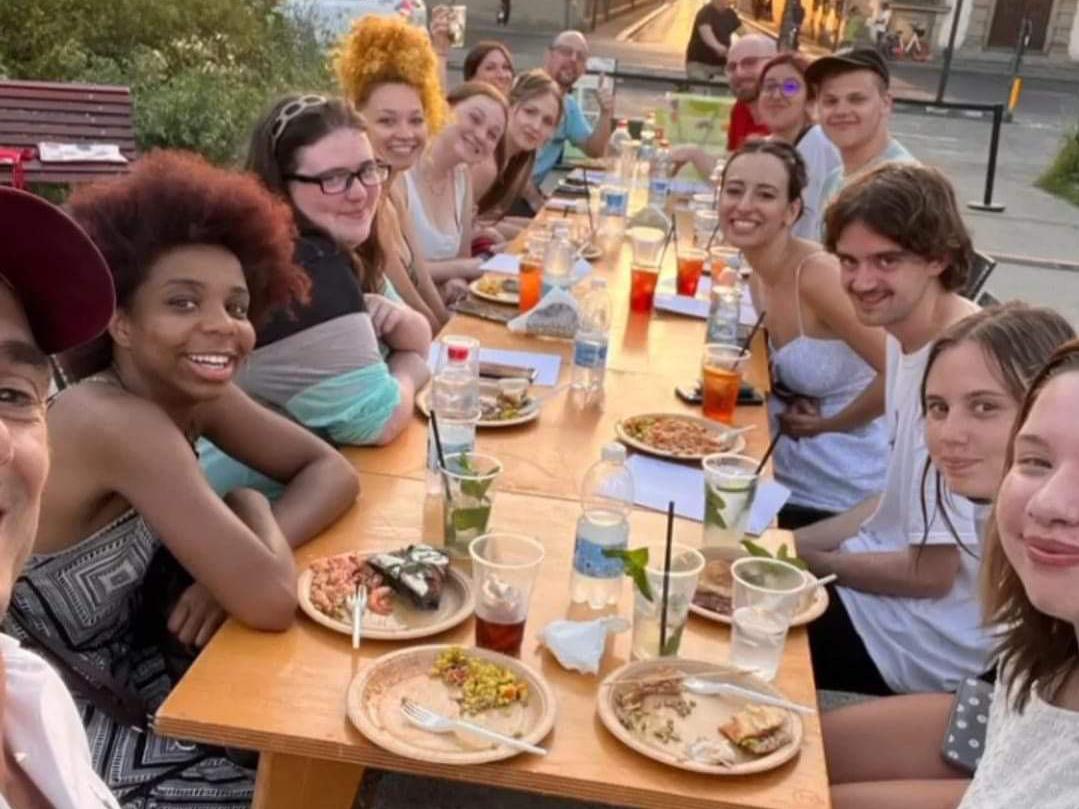
Family and Friends
Study Abroad Program
How you can help.
Families can play an important role in study abroad. It is important to find a balance between helping your student to make wise choices and allowing them to take charge of their own experience.
Before Travel
Get involved.
Here are a few tips to help make your student’s trip successful:
- Engage your student throughout their program-selection process. Ask your student to explain why they have selected a particular program. Research the country, educational system, and culture together.
- Develop a plan for how to handle family emergencies that may arise while your student is away. Create a list of emergency phone numbers and email addresses.
- Ask the doctor about immunizations and health issues specific to the host country. Research laws and availability for any medications your student requires to ensure that they are legal abroad.


150+
Programs
4
Types of Programs
Through the Program
Stay involved.
Keeping in contact with your student while they are abroad is now easier than ever. Email, texts, and social media help students remain connected from across the world. Once your student is abroad, have them provide you with the following information:
- Host family name or name of residence abroad
- Overseas phone number
- Host school name or program name
- Name and contact information for the on-site advisor
Prior to departure, agree on how best you will contact each other, via phone, email, or internet phone services. Free internet phone services are available for most smartphone users with a Wi-Fi connection. Popular programs include Line, Messenger, and WhatsApp.
150+
Programs
4
Types of Programs

Calling Overseas
Calling Overseas
To contact your student, simply dial 011 + country code + city code + phone number.
Culture and Reentry Shock
Provide the support your student needs.
All students experience some degree of culture shock during their time abroad.
It’s important for family and friends to recognize the signs and symptoms and remain supportive. If you receive frequent emails or phone calls, you may recognize a change from “everything is great” to “this place is awful.”
It takes a while to settle in and begin to put things in perspective. If your student seems stuck in a negative mindset, try to remain positive and supportive. Usually they are just venting to people who understand.
Encourage them to speak to a faculty director, host coordinator, or other international students about these feelings.
However, if you truly believe your student is having trouble, please contact our office immediately so that we may investigate the situation.
Coming home can be just as difficult. This is particularly true for students who spend a semester or year abroad. It will take a bit of time to readjust. Study-abroad students grow personally. They may feel frustrated because they changed, but everything at home is still exactly the same. Be patient and allow your student time to share stories and memories from abroad. Eventually, they will fall back into step with life in the United States.

Safety and Security FAQ
Find the answers you need.
Participant safety and security are our number one concern. The Study Abroad Program regularly monitors events overseas, receives daily briefings from the US Department of State, and keeps in constant contact with our global partners and the Centers for Disease Control. We do get a fair number of questions from concerned family and friends, so we’ve put together a list of our most frequently asked questions. Read through these. It may help ease your concerns.
Carrying a US passport, in and of itself, is no guarantee of safety or absolute security. In certain places and certain times, it’s very possible to get caught in political strife that may or may not be directed at foreigners, generally, or Americans, in particular. However, it is important to note that there are very few documented instances in the history of study abroad when political violence appeared to specifically target American students.
During orientation, students will be briefed and reminded at times of heightened political tension about being security conscious in their daily activities.
Terrorism is a 21st-century reality. To succumb to the threat by reacting in fear may well be the objective that terrorists seek to achieve. On the other hand, no one wants to make this point at the expense of the health and safety of your student.
All PFW study-abroad participants are covered by overseas insurance, which includes major medical, evacuation, repatriation, and 24-hour emergency assistance. In those few locations with heightened security concerns, the Study Abroad Program and program directors work with local police, US consular personnel, and local university officials in setting up whatever practical security measures are deemed prudent.
The US government monitors the political conditions in every country of the world daily. For current information, advisories, or warnings, you do the following:
- Call the state department in Washington, DC, at 202-647-4000
- Visit the State Department’s website
Parents with concerns about crime and security threats in a given country are urged to take advantage of US Department of State travel advisories, which are available to the public free of charge. Travel warnings are issued when the State Department decides, based on all relevant information, to recommend that Americans avoid travel to a certain country.
Consular information sheets are available for every country of the world. They include information such as location of the US Embassy or Consulate, unusual immigration practices, health conditions, minor political disturbances, unusual currency and entry regulations, crime and security information, and drug penalties.
Don’t let your student leave home without having as many reliable means of contact as possible in place: a mailing address, multiple email addresses, social media contacts, and phone and fax numbers. With this in place, in times of heightened political tension, natural disaster, or other difficulty, you should be able to communicate with each other directly about safety and well-being.
You should develop a family communication plan for regular telephone or email contact, with contingencies for emergency situations.
Contact Us
Questions?
Contact the Study Abroad Program at [email protected], or stop by the Liberal Arts Building, Room 264, to meet with an advisor.
